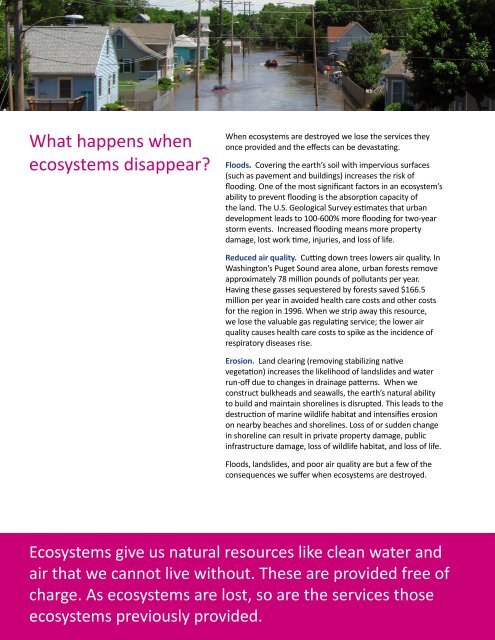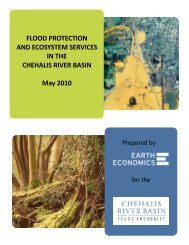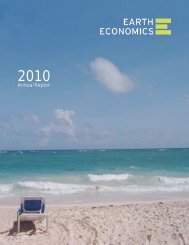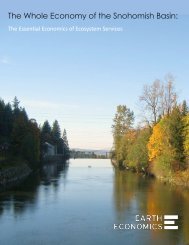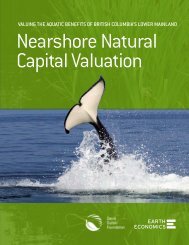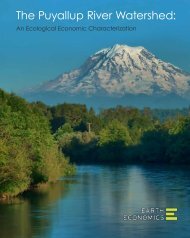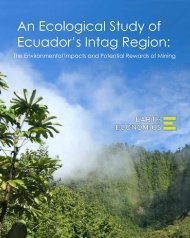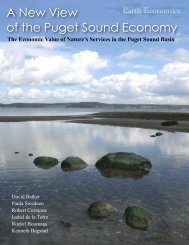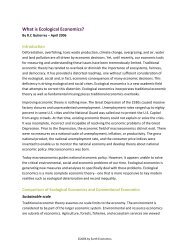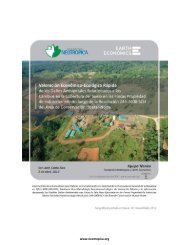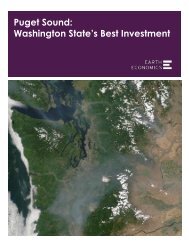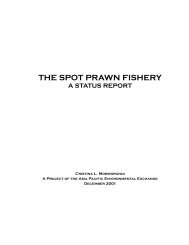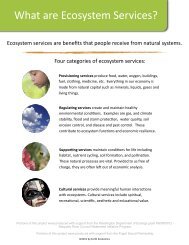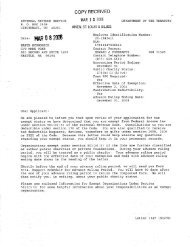A Handbook for Understanding Natural Capital - Earth Economics
A Handbook for Understanding Natural Capital - Earth Economics
A Handbook for Understanding Natural Capital - Earth Economics
Create successful ePaper yourself
Turn your PDF publications into a flip-book with our unique Google optimized e-Paper software.
What happens when<br />
ecosystems disappear<br />
When ecosystems are destroyed we lose the services they<br />
once provided and the effects can be devastating.<br />
Floods. Covering the earth’s soil with impervious surfaces<br />
(such as pavement and buildings) increases the risk of<br />
flooding. One of the most significant factors in an ecosystem’s<br />
ability to prevent flooding is the absorption capacity of<br />
the land. The U.S. Geological Survey estimates that urban<br />
development leads to 100-600% more flooding <strong>for</strong> two-year<br />
storm events. Increased flooding means more property<br />
damage, lost work time, injuries, and loss of life.<br />
Reduced air quality. Cutting down trees lowers air quality. In<br />
Washington’s Puget Sound area alone, urban <strong>for</strong>ests remove<br />
approximately 78 million pounds of pollutants per year.<br />
Having these gasses sequestered by <strong>for</strong>ests saved $166.5<br />
million per year in avoided health care costs and other costs<br />
<strong>for</strong> the region in 1996. When we strip away this resource,<br />
we lose the valuable gas regulating service; the lower air<br />
quality causes health care costs to spike as the incidence of<br />
respiratory diseases rise.<br />
Erosion. Land clearing (removing stabilizing native<br />
vegetation) increases the likelihood of landslides and water<br />
run-off due to changes in drainage patterns. When we<br />
construct bulkheads and seawalls, the earth’s natural ability<br />
to build and maintain shorelines is disrupted. This leads to the<br />
destruction of marine wildlife habitat and intensifies erosion<br />
on nearby beaches and shorelines. Loss of or sudden change<br />
in shoreline can result in private property damage, public<br />
infrastructure damage, loss of wildlife habitat, and loss of life.<br />
Floods, landslides, and poor air quality are but a few of the<br />
consequences we suffer when ecosystems are destroyed.<br />
Ecosystems give us natural resources like clean water and<br />
air that we cannot live without. These are provided free of<br />
9charge. As ecosystems are lost, so are the services those<br />
ecosystems previously provided.


